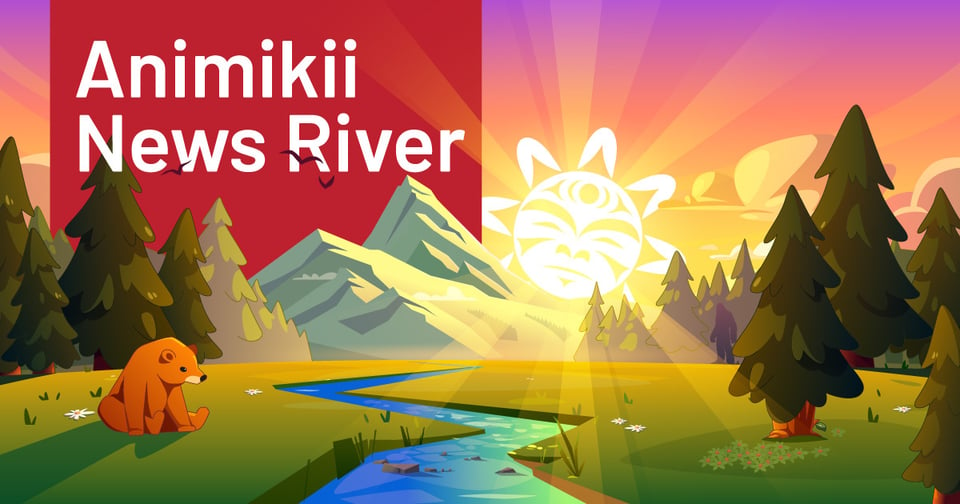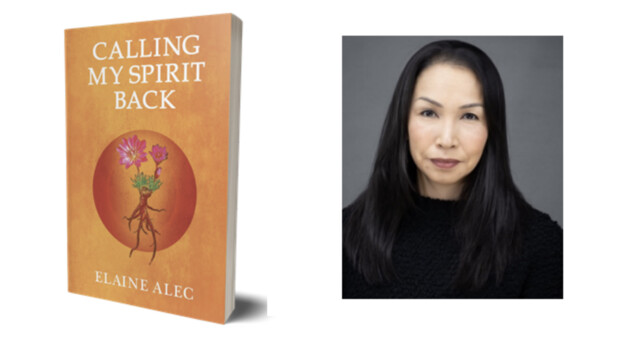Indigenous tech news grounded in trust, safety and belonging
In this week's News River we’re sharing research, frameworks and policy that are lifting up Indigenous tradition, identity, and sovereignty.

We'd love to hear from you - help our conversations grow stronger and more meaningful by commenting on this week’s stories!
Share your thoughts and reflections or cite additional sources for folks to dive deeper.
At the bottom of this newsletter you will see a link that says “Leave a comment on the web” click that and it will take you to the online version of News River ;)
This week’s stories include:
A story about how data-driven research helped First Nations maintain their Treaty-protected cultural and economic traditions.
An article that explores ways Canadians should think about Indigenous nationhood with Canada’s sovereignty under threat.
A draft policy on Indigenous verification is accepting public input for the next four weeks.
A book recommendation that’s not just a story of survival—but a call to remember your humanness - through a powerful blend of memoir, Indigenous wisdom, and healing.
Cultivating trust and belonging to transform systems

The big picture: Elaine Alec, a syilx and secwepemc author and chief empowerment officer @ Naqsmist Storytellers Inc. held their annual conference last week in Vancouver. Keynotes and breakout conversations explored how the framework of Cultivating Safe Spaces (CSS) works to decolonize organizations, communities and individuals.
Why it matters: Organizations invest in training like safe spaces, cultural safety, DEI, leadership development, and soft skills because they’re grappling with employee burnout, attrition, quiet quitting, and feelings of being unsafe and unsupported in the workplace. Leaders can gain the clarity to navigate complexity, foster cultures of belonging, and build resilient teams through the tools and strategies offered by the CSS framework.
Key points:
The systems we live and work within were designed to keep people scared and complicit, creating barriers to connection, innovation, and growth. CSS empowers and equips people to build trust, safety and belonging.
Break out sessions shared how the framework can be applied in sectors like Emergency Management and Climate Readiness, and how it aligns with Mental Health and Wellness in the Workplace.
Animikii’s Director of People Operations, Chuck Frank, and Communication Strategist Catherine Ruddell, shared our perspectives on Indigenous Technology as Move Slow and Empower People, and the ways the CSS framework has been influencing our policy and workplace culture since 2021.
What they're saying:
"I used to think decolonization was this massive, abstract concept I couldn’t apply. CSS broke it down for me—it gave me tools to reflect, listen, and act in ways that align with my values.”
"CSS helped our leadership team move from ideas to action. It’s not just about learning concepts—it’s about embedding them into how we operate as a team and an organization."
What's next: Elaine’s newest book called Coming of Age: Overcoming Trauma to Achieve Self-Determination, is now available for pre-sale!
Learn more: Coming of age is the journey back to who we are.
Curated Articles
As Canada is threatened, it’s urgent to revisit Indigenous sovereignty and nationhood
As a Kanienʼkehá꞉ka educator concerned with Indigenous language education, civic education and reconciliation, I believe it’s important to explore how Canadians should think about Indigenous nationhood with Canada’s sovereignty under threat. Canadian politicians, public intellectuals and members of the public have reacted strongly to this threat in ways that assert Canadian nationhood, sovereignty and identity. I also believe a U.S. annexation of Canada would be devastating for Indigenous Peoples.
USask anthropology research receives international acclaim
As modern development spreads across Canada, First Nations in the Peace River region of British Columbia and Alberta require unbiased, data-driven research to maintain their Treaty-protected cultural and economic traditions. “Several years ago we embarked on a study that would try to make visible the importance of that traditional economy in those communities by providing the First Nations the necessary data and information they needed to make an argument to government and industry,” said Natcher, a professor in USask’s College of Agriculture and Bioresource’s Department of Agricultural and Resource Economics. The large data sets have allowed Natcher and his team to directly display the long-term ramifications of development to the area.
Memorial University calling for input on new Indigenous verification policy
Memorial University is looking for public input on an upcoming policy that will see Indigenous students and faculty asked to verify their Indigenous identity before accessing grants, scholarships and jobs set aside for Indigenous-only applicants. The university announced Monday it had completed a draft policy and would accept public input for the next four weeks. Verification policies are "something that Indigenous people, here and across the country, really are calling for," said Catharyn Andersen, MUN's vice-president of Indigenous affairs.
Pretendians and Publications:The Problem and Solutions to Redface Research
Indigenous Studies, as a discipline, has rapidly grown in the past few decades. Yet a troubling trend has more recently emerged: the rise of “pretendians” — individuals fraudulently claiming Indigenous identity and misrepresenting Indigenous research, threatening the integrity of Indigenous Studies broadly. The report examines how academic pretendians distort research, misappropriate resources, and undermine the goals and values of authentic Indigenous communities. These authors also look at how the institutions that shape the academy nurture and perpetuate this phenomenon.
N.W.T. counsellors say $7M from feds will establish new healing lodge
New federal funding for a healing lodge in the N.W.T. will help establish a facility focused on cultural immersion, land-based wellness, and processing grief and trauma, according to a couple of trauma counsellors in the territory. The funding is part of the federal Green and Inclusive Community Buildings (GICB) program, focused on creating a healthy environment and economy. The planned healing lodge will build on the work of the N.W.T.-based Northern Indigenous Counselling program, which trained 16 counsellors in its 2022 cohort and expects 13 more to graduate this July.
Indigenous Leaders: Indigenous-led film studio is ready for its closeup
White Owl Film Studios in Wahnapitae First Nation is seeking new projects and preparing to celebrate Canadian National Film Day on April 16 by welcoming the community to visit the facility and take in a few Canadian films. Chief executive officer Roy Roque said that White Owl Film Studios is an Indigenous-led space built to support and uplift all creative voices. “This studio is my way of giving back to the community — creating opportunities, strengthening our industry, and ensuring Northern Ontario remains a thriving hub for film and television,” Roque explained.

